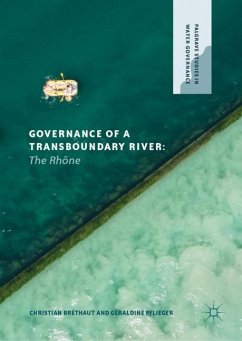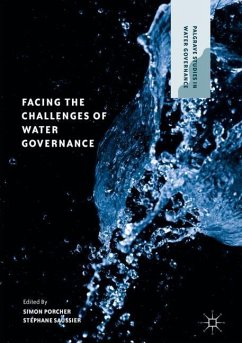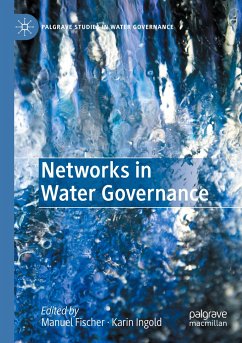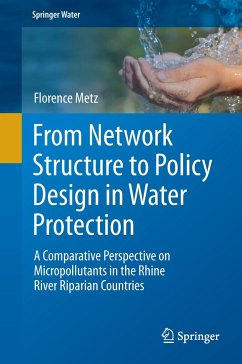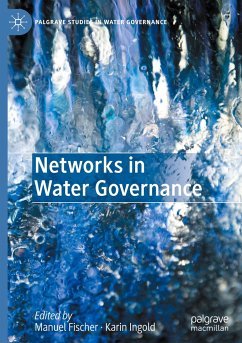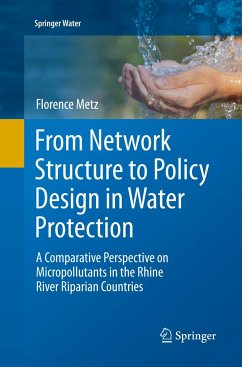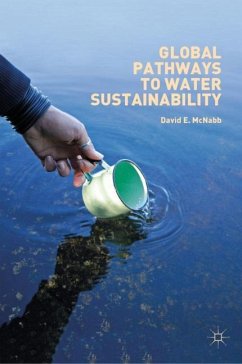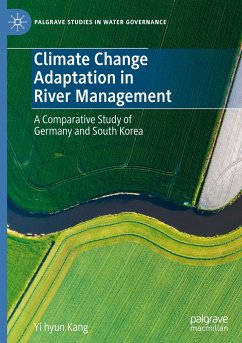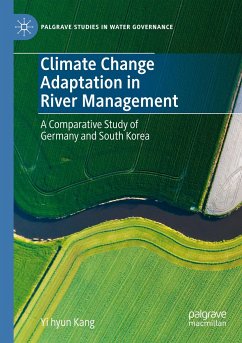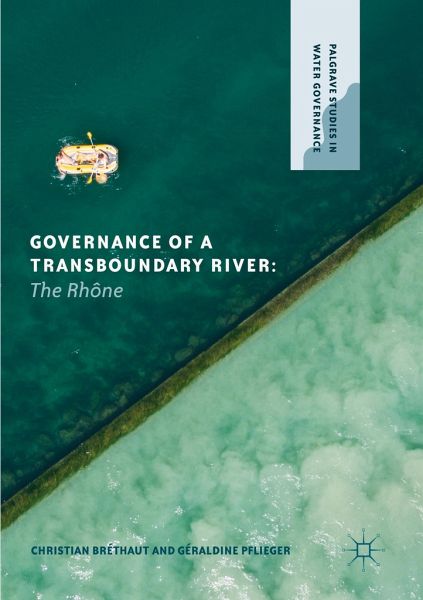
Governance of a Transboundary River
The Rhône
Versandkostenfrei!
Versandfertig in 6-10 Tagen
38,99 €
inkl. MwSt.
Weitere Ausgaben:

PAYBACK Punkte
19 °P sammeln!
This book examines the issues at stake in transboundary water governance, it spotlights the Rhône River, a biophysical entity of enormous historical, political and economic importance. The Rhône has long been viewed essentially as a tool for energy production, heavily canalized and exploited by a series of dams and nuclear power plants - with the result that those who live along this great river have simply turned away. Basing their work on a detailed analysis of the history and the current management of the Rhône, the authors explore the challenges linked with transboundary river basin gov...
This book examines the issues at stake in transboundary water governance, it spotlights the Rhône River, a biophysical entity of enormous historical, political and economic importance. The Rhône has long been viewed essentially as a tool for energy production, heavily canalized and exploited by a series of dams and nuclear power plants - with the result that those who live along this great river have simply turned away.
Basing their work on a detailed analysis of the history and the current management of the Rhône, the authors explore the challenges linked with transboundary river basin governance including relevant international water law, appropriation of river and river resources by Nation States. Finally, they discuss a diverse range of institutional architectures and outlines several solutions that might cope with the growing complexity of transboundary management of a major river. The book will be of interest to scholars in fields such asenvironment studies, water policy and Natural Resource Management, it also has relevance to water managers and entrepreneurs concerned with staying abreast of developments in water policy and governance.
Basing their work on a detailed analysis of the history and the current management of the Rhône, the authors explore the challenges linked with transboundary river basin governance including relevant international water law, appropriation of river and river resources by Nation States. Finally, they discuss a diverse range of institutional architectures and outlines several solutions that might cope with the growing complexity of transboundary management of a major river. The book will be of interest to scholars in fields such asenvironment studies, water policy and Natural Resource Management, it also has relevance to water managers and entrepreneurs concerned with staying abreast of developments in water policy and governance.





